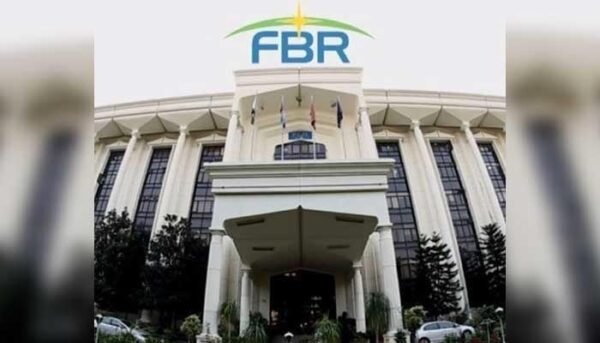COMPREHENSIVE RESTRUCTURING OF FBR SET TO TRANSFORM

By: Maria Mansab
To strengthen and fortify Pakistan’s fiscal vitality, the Special Investment Facilitation Council (SIFC), presided over by senior civilian and military brass, has approved a plan for the FBR, PRAL restructuring with Nadra, and the implementation of a streamlined scheme for retailers within 15 days to strengthen Pakistan’s fiscal health.
The committee recently met under the chairmanship of Prime Minister Anwaarul Haq Kakar, and top officials revealed that Minister of Finance Dr. Shamshad Akhtar proposed a new governance structure for the FBR, including the establishment of separate Federal Boards of Customs and Inland Revenue, as well as the appointment of DGs from respective cadres as their heads.
The restructuring initiative is poised to establish a robust framework for transparency and accountability. A key facet of this plan involves the establishment of separate oversight boards for customs and inland revenue administrations. These boards, under the chairmanship of independent, high-caliber professionals, are set to include public and private sector representation. The nomination process will be based on proper criteria and the right expertise and integrity. By entrusting oversight to accomplished professionals from diverse backgrounds, the restructuring will not only fortify the governance but will also instill public confidence and elevate the effectiveness of Customs and Inland Revenue administrations.
The restructuring initiatives will be a highly advantageous strategy for FBR, bringing about substantial benefits. Beyond its core objectives of accountability and transparency through oversight boards, this transformative process includes the reconstitution of the Federal Policy Board under the Minister for Finance. The consequential reporting structure, with the Secretary of Revenue Division directly accountable to the Federal Policy Board, introduces a new policy mandate with robust implementation.
A critical aspect of this overhaul is that the Tax Policy Office is strategically constituted with human resources having the right expertise in taxation and industry dynamics. Operating within the purview of the Federal Policy Board, this increases the harmonization of asset valuation modalities and the legal and regulatory framework of taxation regimes and promotes revenue and policy coordination. Ultimately, the restructuring not only bolsters governance but also sets the stage for heightened efficiency, responsiveness, and success in the multifaceted realm of revenue management and policy coordination within the FBR.
These proposed reforms will ensure the independent working of the institution. Crucially, these transformative measures are designed to be implemented within the existing allocation of resources by the FBR, underscoring a commitment to efficiency and financial responsibility.
Notably, the Governor SBP advised that the audit function of the FBC and the FBIR would be placed under the Tax Policy Unit (TPU) to ensure independence. This multifaceted approach will ensure autonomy within the institution. It also emphasizes prudent resource utilization, ultimately positioning the FBR for enhanced effectiveness and success in its critical functions.
This initiative will also pave the way for enhanced modernization and operational efficiency. The PRAL restructuring, accompanied by a targeted emphasis on rightsizing, places a focus on technical HR, broadening to Tax Base (BTB), and implementing robust IT integration. The pivotal inclusion of data analysts and artificial intelligence in BTB and the development of mathematical models reflect a strategic move towards cutting-edge methodologies.
Additionally, the planned reorganization of the IT Wing amplifies the overarching goals of instilling technological innovation for streamlined operations. This holistic approach will reinforce institutional adaptability to contemporary challenges and also position it for heightened effectiveness and success in meeting its core objectives.
The restructuring endeavors to further enhance the country’s revenue streams, effectively addressing a budget deficit of around 8% of the GDP per year. This strategic initiative is a timely response to Pakistan’s challenge of meeting its growing financing needs, resulting in an alarming increase in the country’s debt burden.
By comprehensively addressing these fiscal challenges through the overhaul, the restructuring aim is to establish a more resilient and sustainable financial framework. This proactive approach will not only position Pakistan for enhanced economic stability but also signify a crucial step toward mitigating the adverse impacts of a burgeoning debt burden and fostering a healthier fiscal landscape.
The fresh restructuring exercise is largely administrative, initially proposing a National
Tax Authority (NTA) that would centralize the tax functions of provinces and the Center. This strategic move aligns with the government’s agenda to enhance governance, efficiency, and overall effectiveness within FBR. By consolidating tax functions under the NTA, the overhaul is poised to streamline operations, fostering a more cohesive and coordinated approach to revenue collection. Beyond this, it would also strengthen the internal governance at FBR, making a pivotal step towards creating a more responsive, accountable, and efficient tax administration system for the benefit of nations.
The restructuring measures within the FBR stand as a decisive step toward eliminating the apparent conflict of interest in tax collection as well as enhancing the performance of the tax machinery. This strategic overhaul will not only address apparent conflicts but will also position the FBR for enhanced efficiency.
A significant step in this transformation involves the FBR’s proactive embrace of innovative digital technologies. This forward-looking approach would help to broaden the tax base and minimize the gaps in tax policy and compliance. By incorporating cutting-edge digital solutions, the overhaul ensures a more agile, responsive, and technologically advanced tax administration, laying the foundation for a more equitable, transparent, and effective revenue collection system





